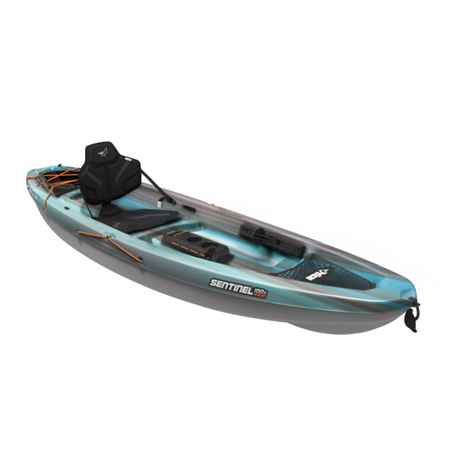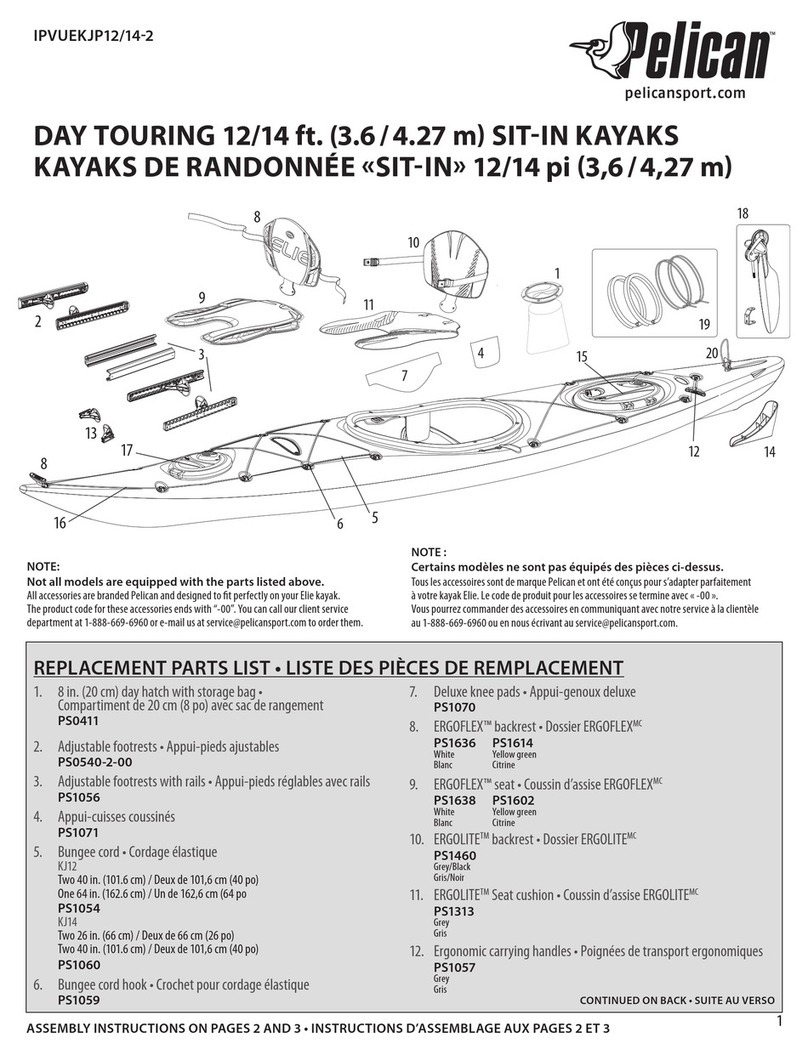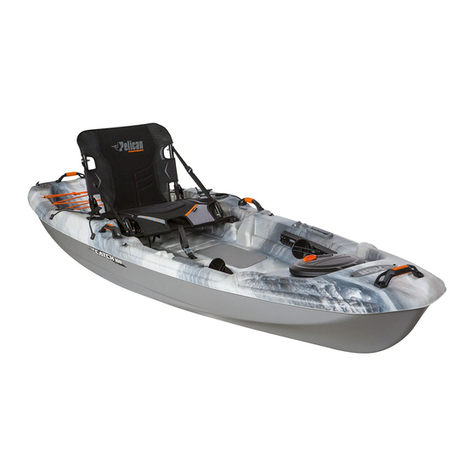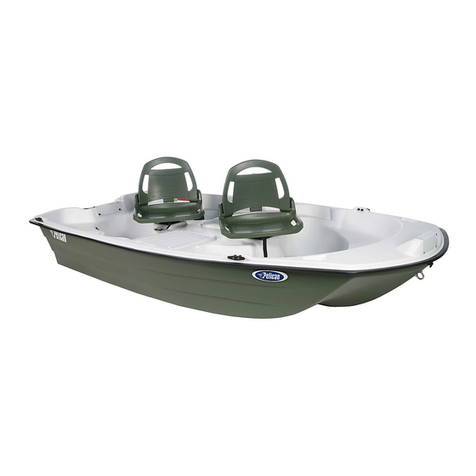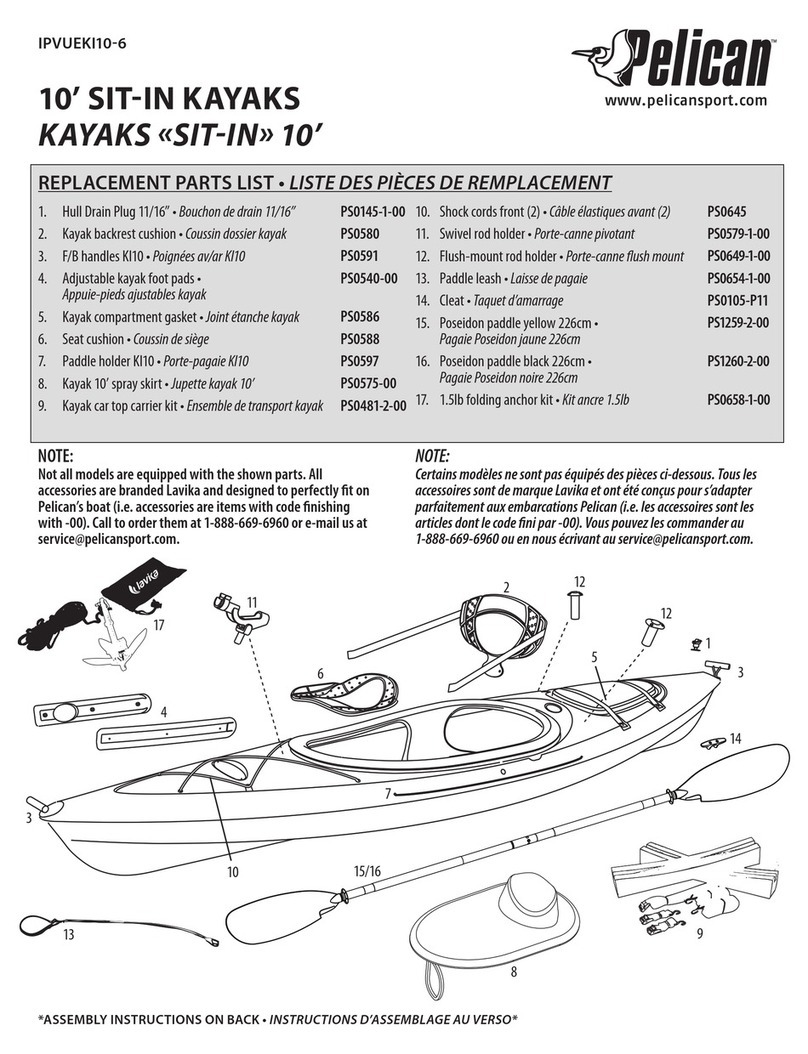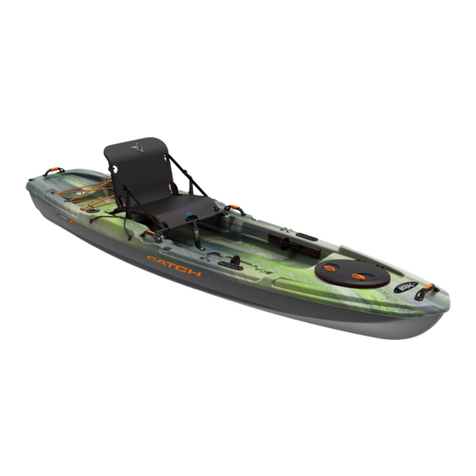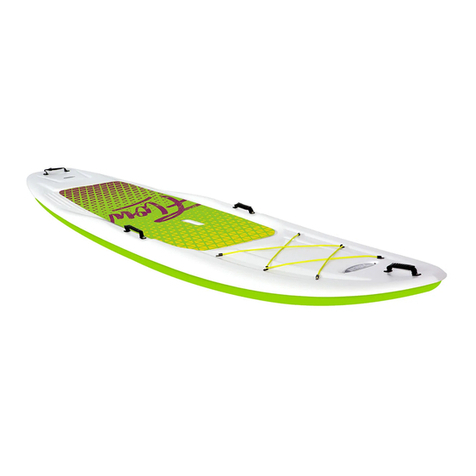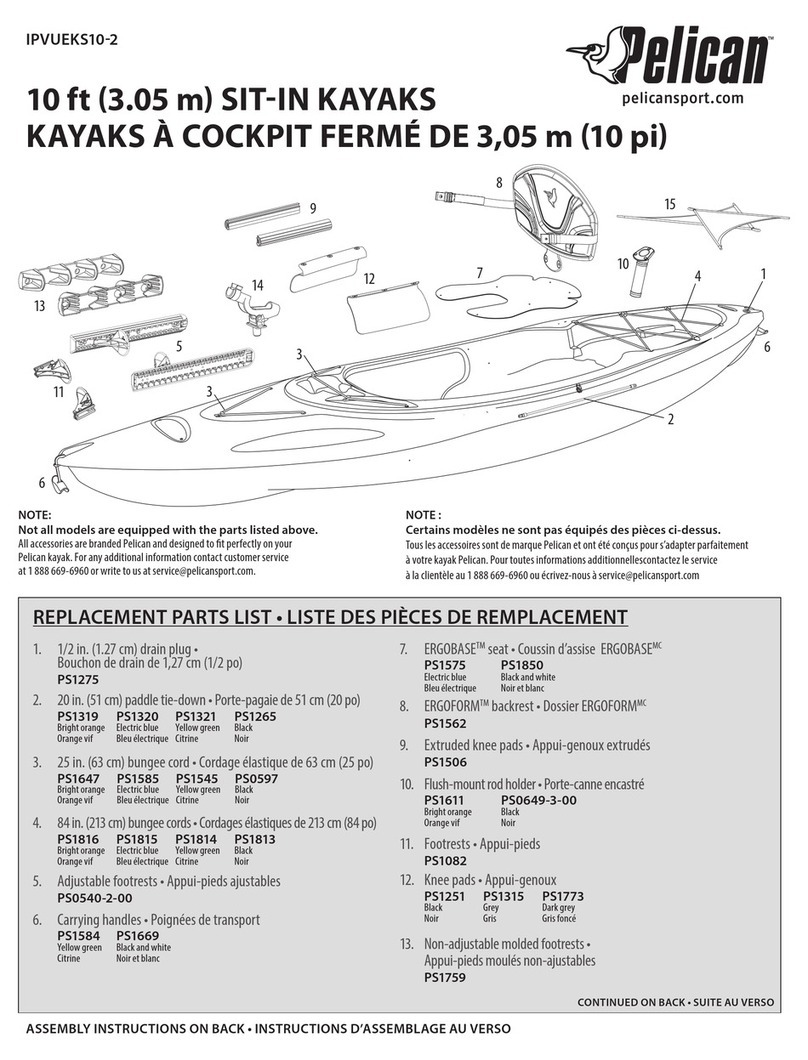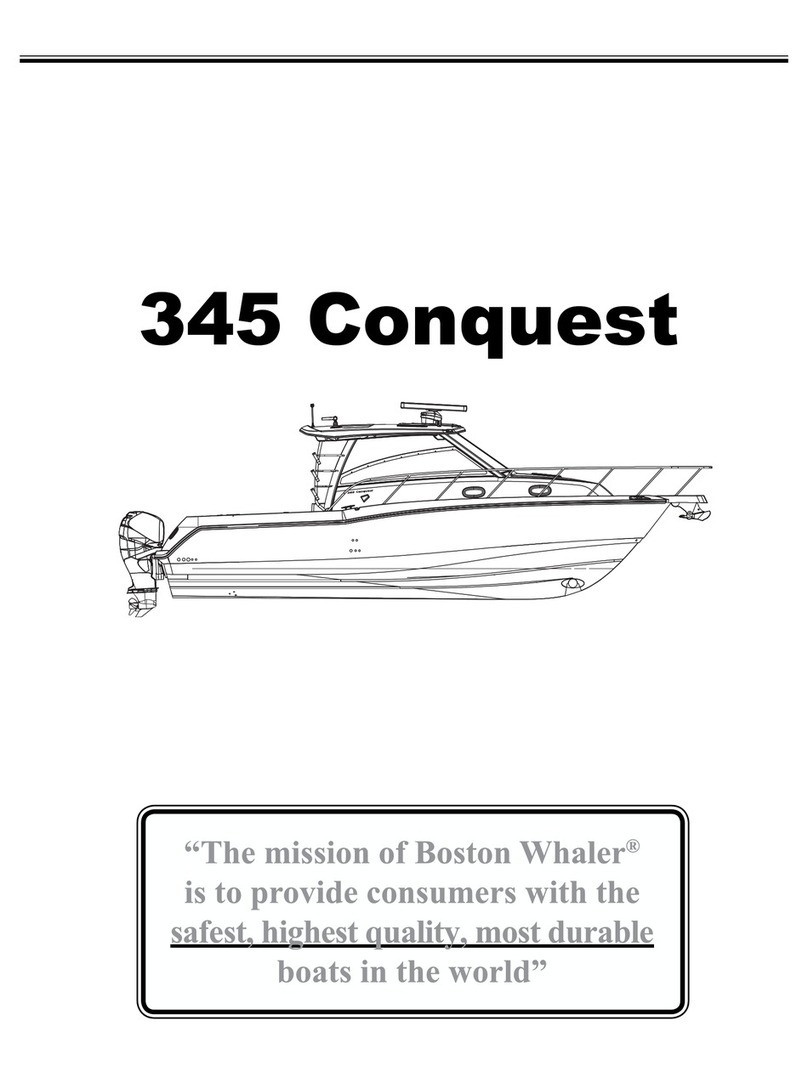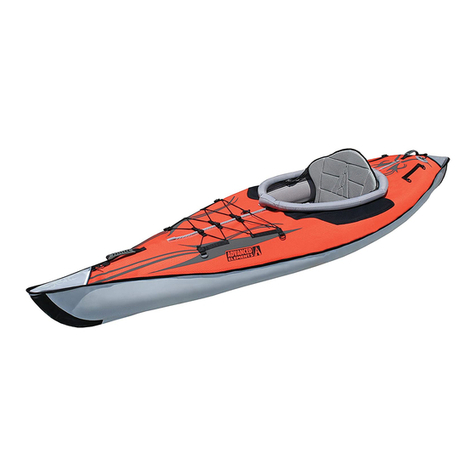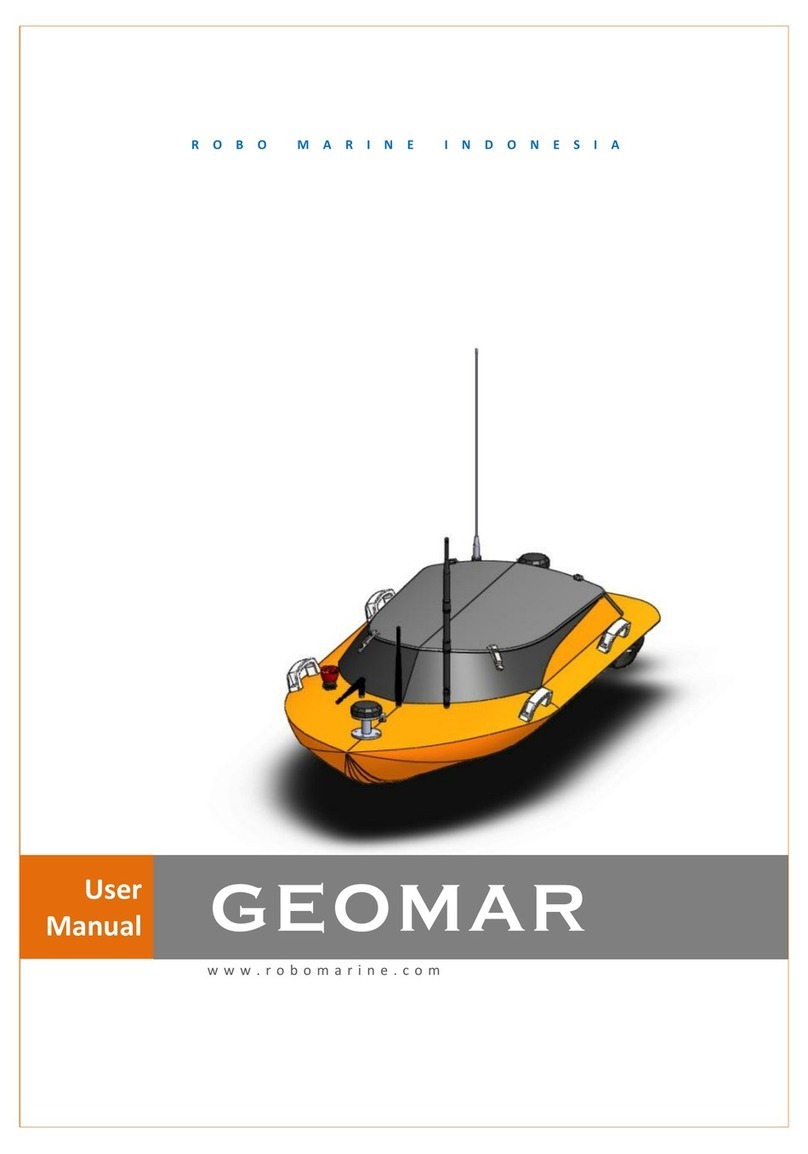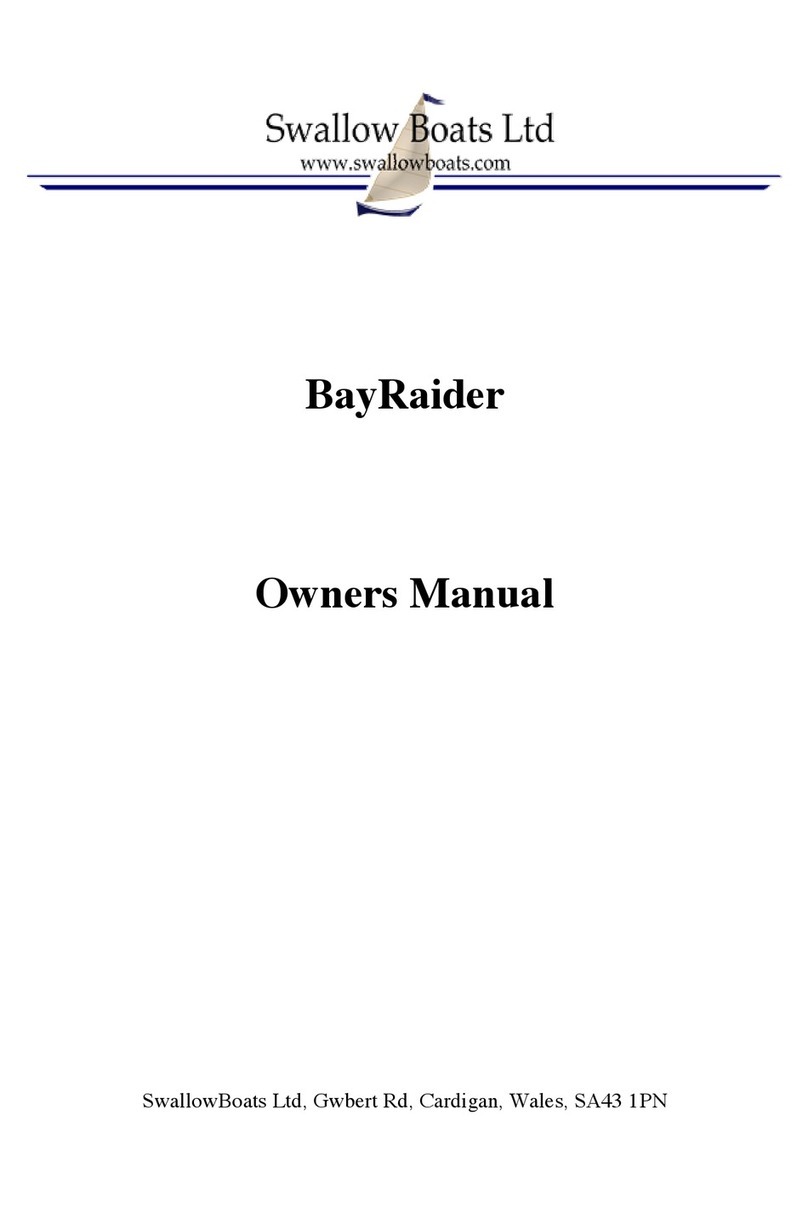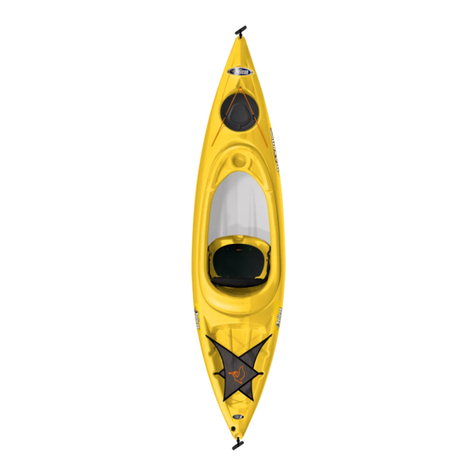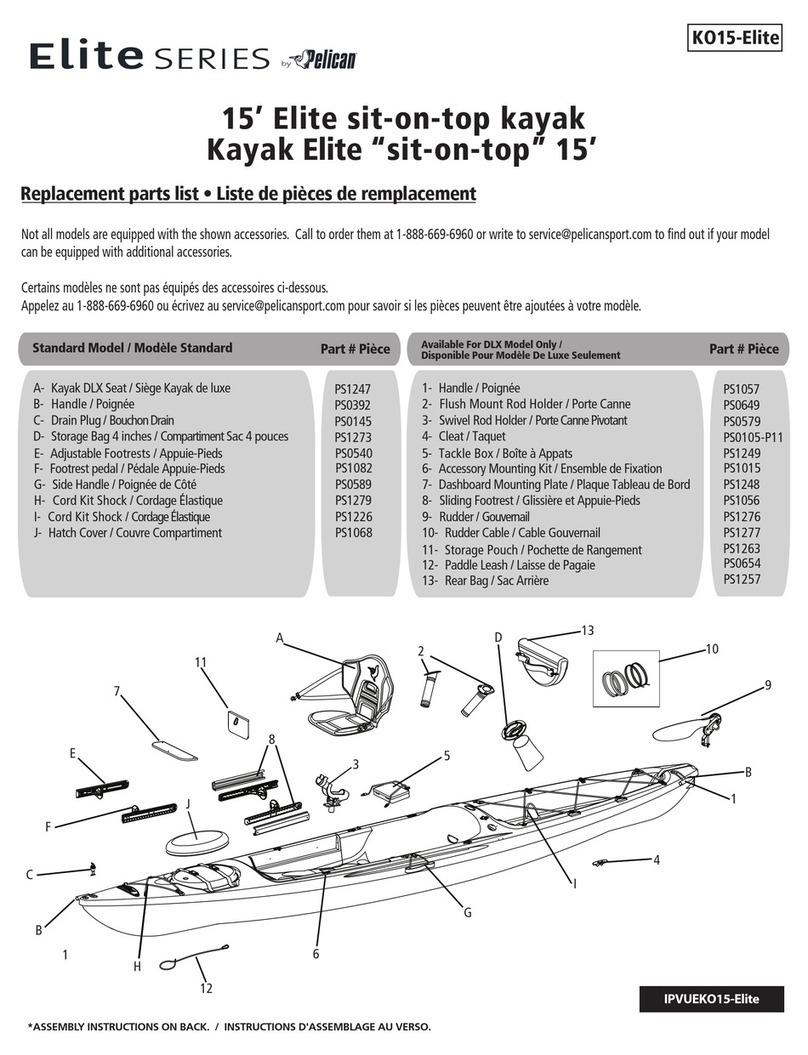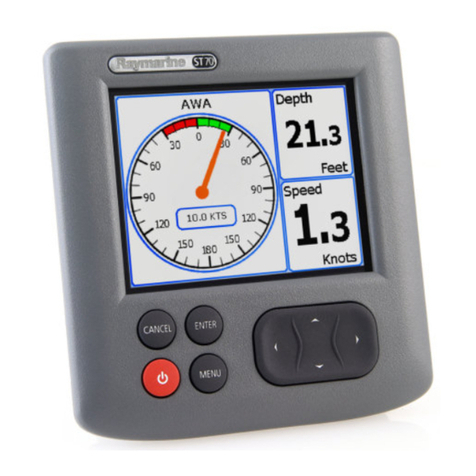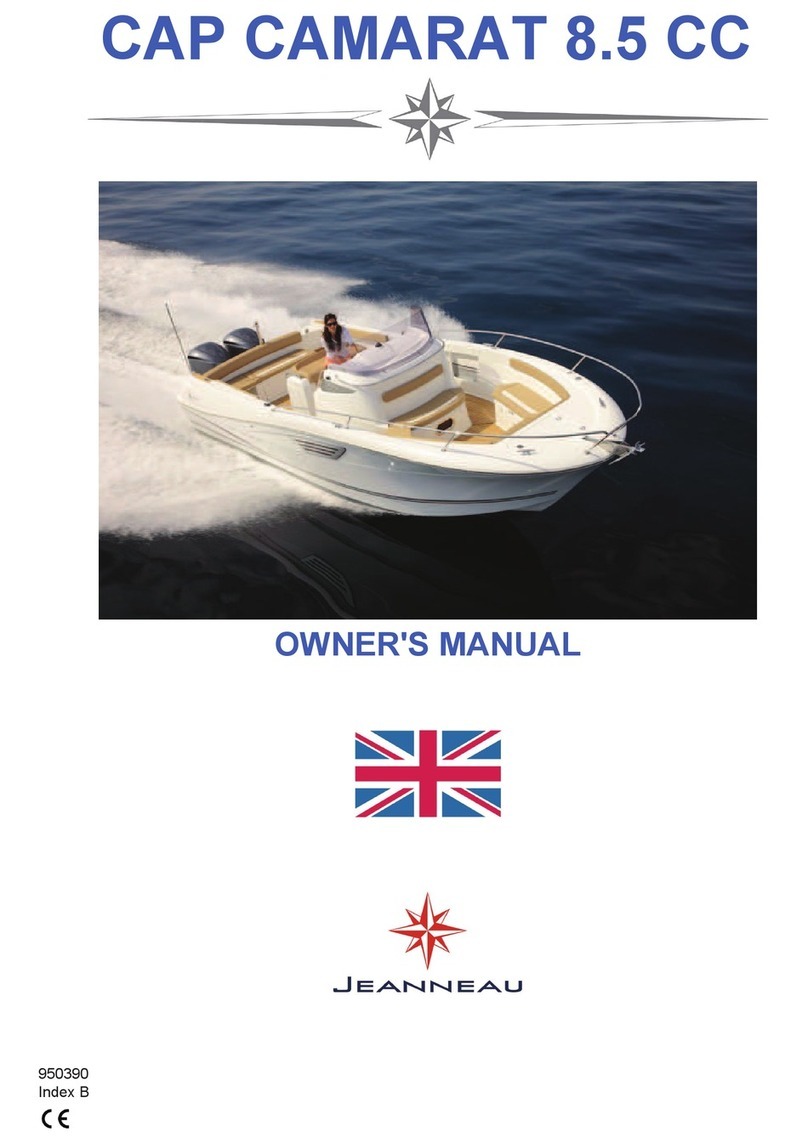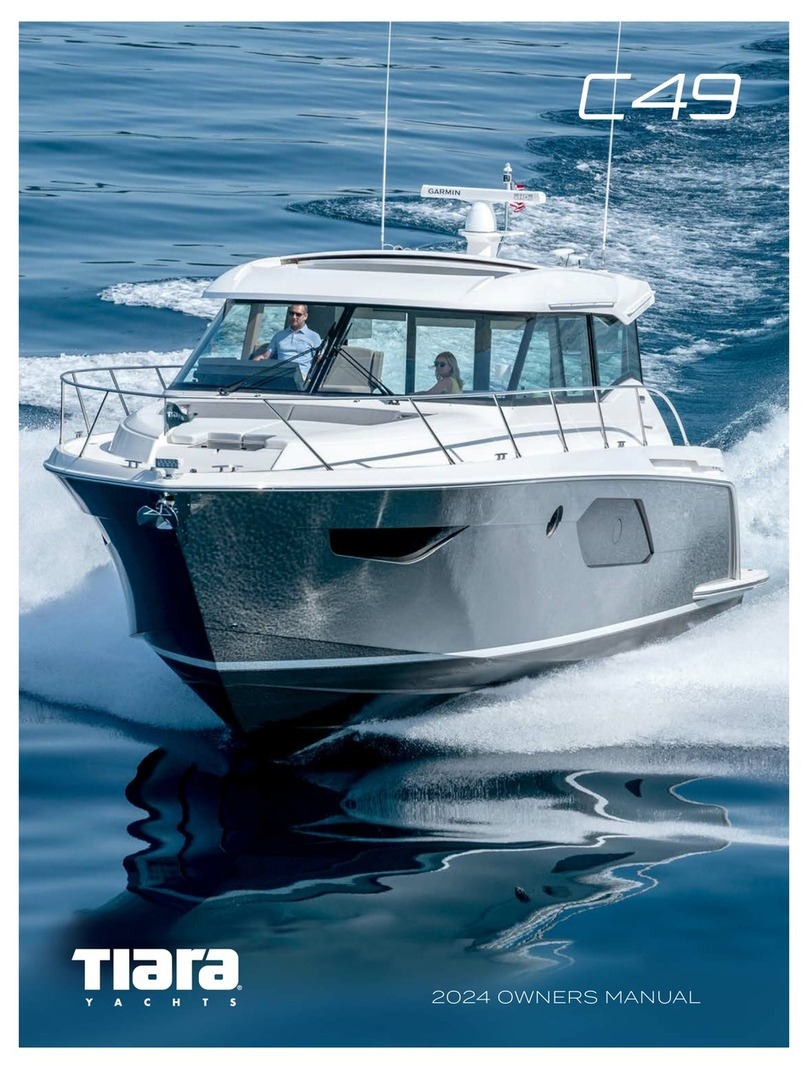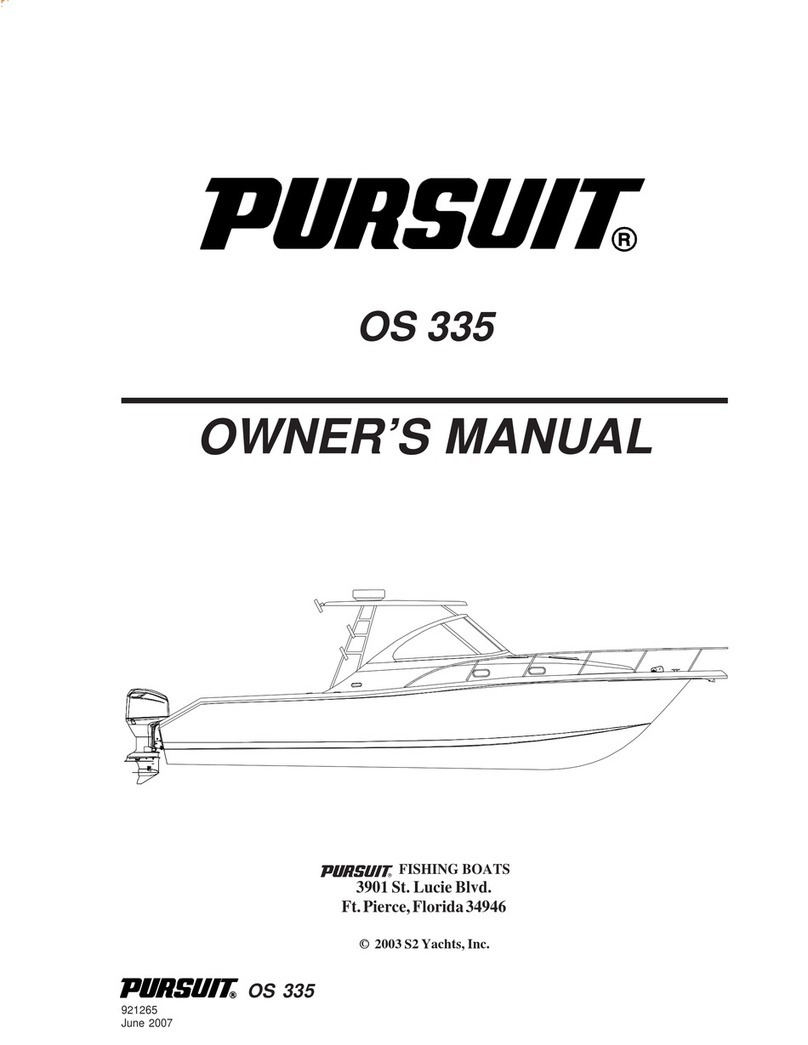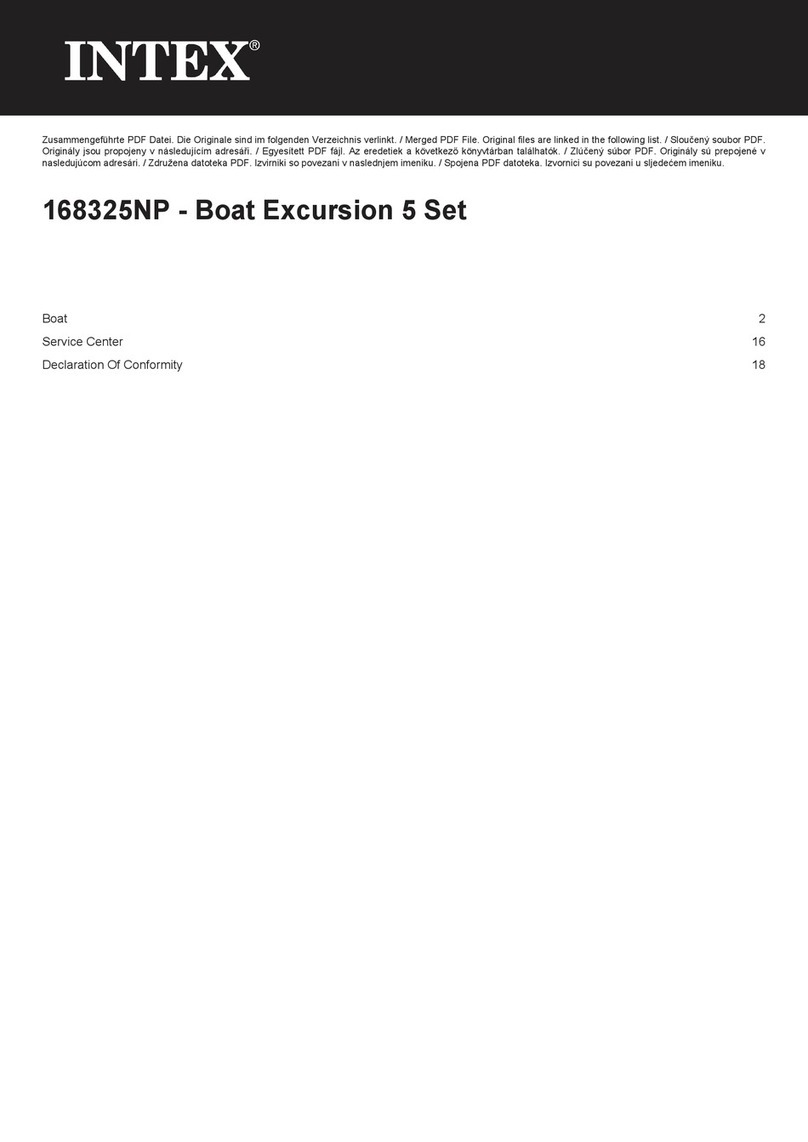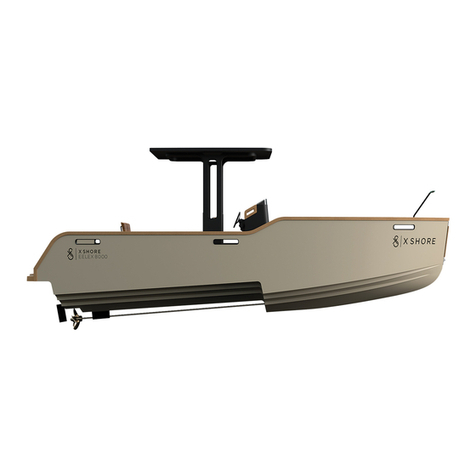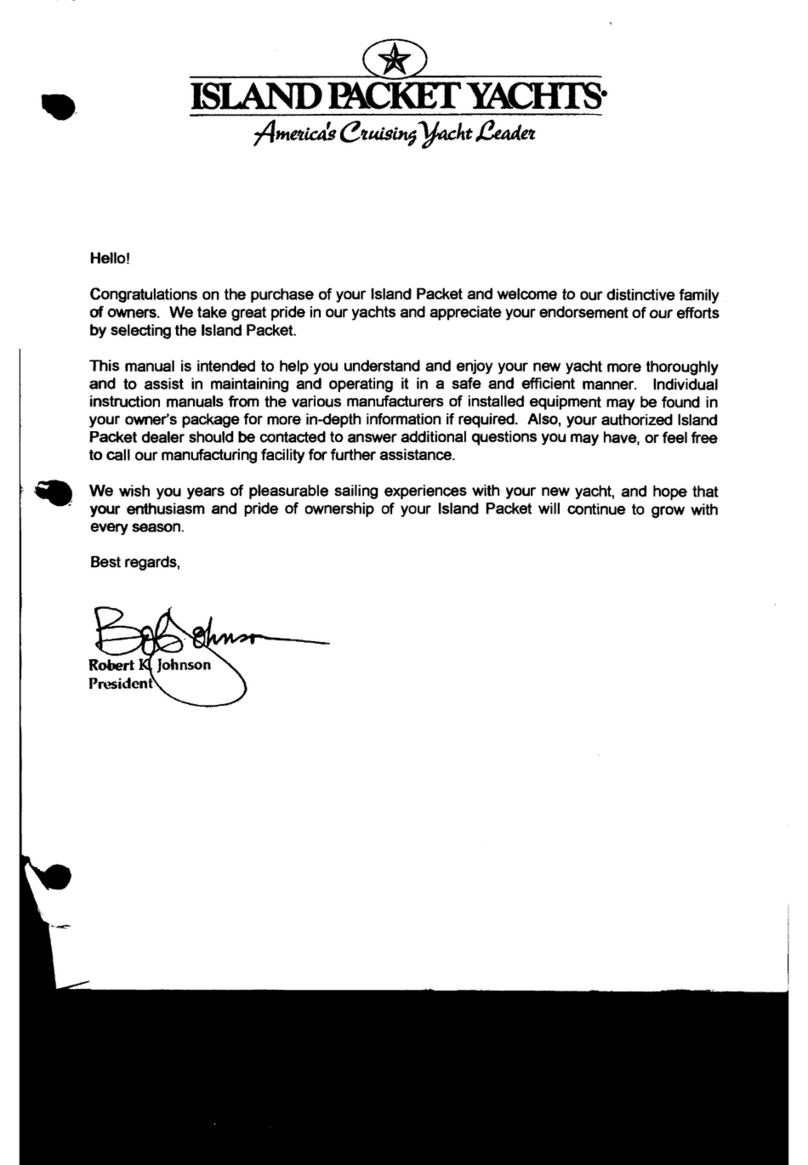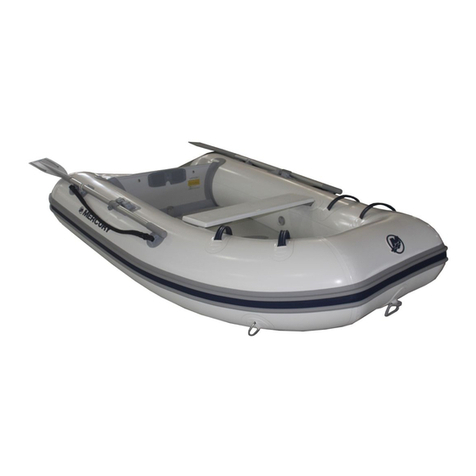8. Hypothermia
Boating accidents in cold water are very dangerous. Hypothermia, the loss of
body heat due to immersion in cold water, can be deadly. Survival time can
be as short as 15 minutes in 35°F (2°C) water. Dress appropriately for weather
conditions, wearing a wet or dry suit if necessary.
9. Never paddle alone
It is best to have someone with you in case of an emergency or accident. Also,
always tell someone your boating plans, including where you are going, how
long you’ll be gone, and how many people you’ll be with.
10. Never allow minors to use this boat without adult supervision.
11. Always familiarize yourself with the body of water where you will
be paddling.
Learn what hours boating is permitted, whether there are any known hazardous
conditions, and where you can get help quickly in case of emergency or accident.
12. Always abide by all Coast Guard regulations and State and local
laws, regulations, ordinances, and rules concerning boating and
boating safety.
Check with the Coast Guard and State and local authorities concerning proper
boat handling and the proper equipment to be carried on board, such as lights
and sound-producing devices.
13. Drain plugs
Check that the drain plug(s) of the boat is (are) securely in place before launching
the boat. You should drain the space between the deck and the hull of any water
accumulated through condensation or seepage.
14. Motor
Never use a motor larger than rated on capacity tag displayed on the boat.
Follow instructions that come with motor. Handle gasoline with extreme care.
Avoid sudden maneuvers which could cause loss of control, and capsizing, or
passengers to fall from the boat.
15. Weight capacity
Review the passenger and weight capacity limitations. Ensure the loading will be
within these limits. Proper distribution of weight is necessary to ensure proper
balance (trim) and performance. Each boat has capacity tag clearly displayed on
the craft.
16. Emergency paddle(s)
Always bring an emergency paddle or oar on board.
SAFETY PRECAUTIONS
WARNING
We suggest that you read the information below before using the boat. Failure
to follow the warnings/ precautions below may lead to serious injury or death.
1. Weather and water conditions
Check the weather and water conditions before you go boating. Your boat is
designed to be used only in sheltered waters, lakes, and slow moving streams.
It is not designed for whitewater use. Never go paddling in severe winds, rain,
thunderstorms, choppy waters, strong currents, flood waters, or where tides will
seriously affect your ability to steer the boat or return to shore.
2. Every passenger should always wear a Coast Guard approved
Personal Flotation Device (PFD) when using this boat.
Before going boating, read the PFD manufacturer’s information pamphlet regarding
the PFD and thoroughly familiarize yourself with how the PFD is to be worn.
3. Never use or consume alcohol, drugs, or any other substance that
may affect your coordination, judgment or ability to safely operate
the boat.
4. Sound device
The Coast Guard requires boaters to have a means of signalling other boaters of
their presence. You should keep a sound device in the boat with you at all times.
If possible, attach the sound device to your Personal Flotation Device.
5. Never stand up in the boat
Standing up in the boat may cause it to capsize. If the boat should capsize,
please note that, in most cases, it is far more dangerous to attempt to swim to
shore than to stay with the boat.
6. Never exceed your ability
Honestly assess your physical capability as to how far and how long you can
paddle and swim.
7. Slippery when wet
The hull material is extremely slick when wet. Always wear slip-resistant shoes
and stay in the center of the boat.
8
